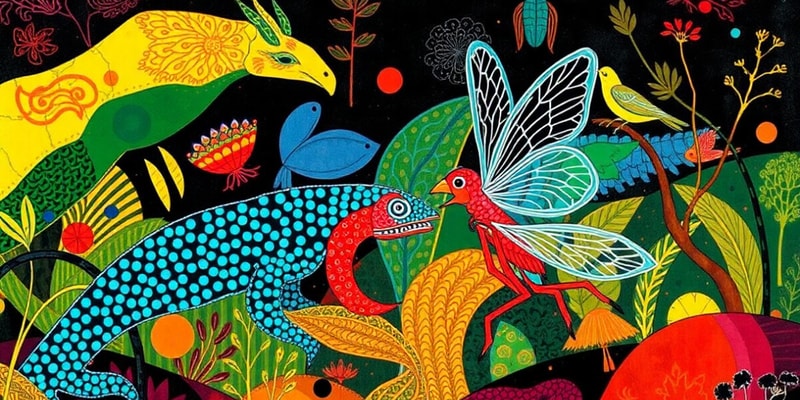Podcast Beta
Questions and Answers
What is the primary focus of linking ecology and evolution?
Which of the following statements about ecology and evolution is true?
Why is understanding the connection between ecology and evolution important?
What does the study of ecology primarily involve?
Signup and view all the answers
How can ecological changes impact evolutionary processes?
Signup and view all the answers
Study Notes
Linking Ecology and Evolution
- Ecology is the study of how organisms interact with their environment.
- Evolution is the change in the genetic makeup of a population over time.
- Ecology and Evolution are linked because ecological interactions can drive evolutionary change.
- Such interactions include:
- Competition for resources
- Predation
- Parasitism
- Mutualism
- These interactions can influence which individuals are more likely to survive and reproduce, leading to changes in gene frequencies.
- The study of evolutionary processes can shed light on the distribution and abundance of species.
- For instance, a species that is better adapted to a particular environment is more likely to survive and reproduce in that environment.
- This leads to the species becoming more abundant in that location.
Example of Ecological Drivers of Evolution
- Climate change can also drive evolution by altering the environment in a way that favors certain traits.
- Marine species are facing challenges due to climate change.
- Warming waters and ocean acidification are creating new selective pressures that are pushing species to adapt, and some species may not be successful in this adaptation.
- The ability to tolerate warmer water or more acidic conditions may be favored in these species.
- As a result, populations are becoming more tolerant of these changes.
- Research has demonstrated that marine species have been shifting their geographic ranges, moving towards cooler waters, in response to rising ocean temperatures.
- Marine species are evolving faster than terrestrial ones.
Study Implications
- Studying the interplay between ecology and evolution is essential for understanding how populations adapt to changing environments.
- This knowledge can inform conservation efforts to protect biodiversity in a changing world.
- Studying the relationship between ecology and evolution is critical for understanding how populations adapt to changing environments.
- This insight can guide conservation efforts aimed at preserving biodiversity in a world of rapid change.
Studying That Suits You
Use AI to generate personalized quizzes and flashcards to suit your learning preferences.
Related Documents
Description
Explore the intricate relationship between ecology and evolution in this quiz. Learn how ecological interactions like competition, predation, and mutualism can drive evolutionary changes in populations. Understand the significance of these processes in shaping species' survival and distribution.




